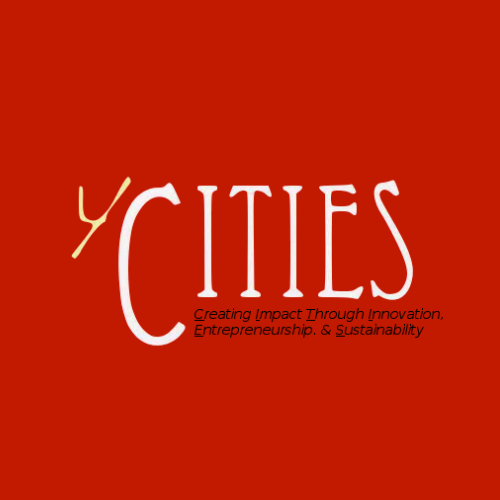Before getting involved in yCITIES in seventh grade, I had absolutely no idea what entrepreneurship was. I had barely heard the word used before and what little grasp on the concept I had was made up of mental images of men with briefcases, talk of investment and stocks, and a focus on STEM. It didn’t seem like something that would interest me, a thirteen year old who was more interested in literature and politics. However, that perspective quickly changed: over the past six years, I have been involved with yCITIES as a competitor, a volunteer, and now as the communications manager. The extent of what I’ve learned over the past years cannot be condensed into a column in a newsletter, but the slew of new knowledge in entrepreneurship, public speaking, problem-solving, and innovation cumulated in a key takeaway that has and will continue to impact the mindset of every yCITIES alum including myself: at it’s core, entrepreneurship is not just a subject to be learned, but a universal asset that can and should be applied to virtually any field as a problem-solving tool that can be used to facilitate change.
A specific field where I’ve been able to understand firsthand the importance of entrepreneurship’s application to is politics. I’m now in college studying political science and have had the opportunity of working with a state senator in the Florida legislature. At first glance, the concepts of entrepreneurship and politics seem incredibly polarized. One dictates the very groundwork of laws and principles this country runs on in an unmistakeably concrete way, and the other emphasizes a mindset of creativity and problem-solving. However, through my work in the state legislature it became increasingly clear just how important this convergence is. Often times, legislation can become a reductive cycle of career politics, applying the same blanket solutions to symptoms of ever-growing societal problems, never truly addressing the root of the problem itself. Although this is unfortunate it is the reality in many situations, and in need of a change. This is where entrepreneurship is useful: it’s a lens that can be applied to virtually any situation to implement a unique way of getting over obstacles or addressing problems at hand. This is crucial in politics because it underscores the importance of breaking cycles that may not be beneficial, and using entrepreneurial skills to accurately and effectively represent constituents.
Not only is entrepreneurship vital to politics in a general sense, but there are several key concepts taught through yCITIES that I’ve seen appear in politics time and time again. One of the most important is the circle of resources. The circle of resources describes the social network of each person; the relationships they have and how they can be useful. This is an incredibly important principle in politics, where getting other legislators to agree with a proposed bill, resolution, or policy is the difference between it passing or not. Another important concept is understanding a target demographic, or in politics, a set of constituents. When an entrepreneur develops an idea, it’s often aimed at alleviating a problem from a certain target demographic. To ensure effectiveness, it’s necessary to understand the needs, wants, and complaints of the people within this group. Being out of touch or misinformed can render a venture feckless. The same goes for politics; the job of each legislator is to represent their constituents and create policies that benefit them. It’s just as important in politics as it is in entrepreneurship to make an effort to understand these groups.
It’s evident that the application of entrepreneurship improves the outreach and effectivity of politics, and that the overlap is crucial in ensuring the out-of-box mindset that benefits constituents the most. This junction is just an example of how entrepreneurship can be meaningfully applied; given this, it’s important to consider the impact entrepreneurship could have on other fields, even and especially those that seem antithetical. Simply put, entrepreneurship is not a conflicting subject but a lens that can be applied to virtually every field and used to incorporate innovative techniques in creating change.
This article was featured in our July 2022 newsletter. Want to submit something? We’d love to hear your experiences with or thoughts on the world of entrepreneurship or innovation. Email Joanna at outreach@youthcities.org to be featured!
To join our newsletter, please email Vicky Wu Davis at vicky@youthcities.org.
